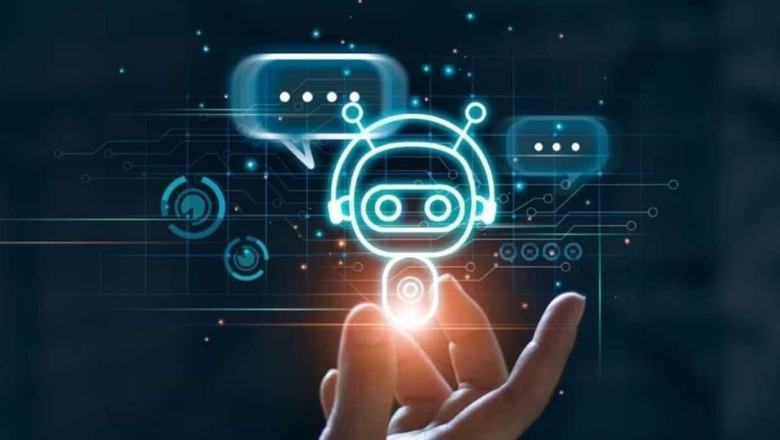
views
By Vikas Kakkar
The integration of artificial intelligence (AI) into various aspects of our lives has brought about transformative changes, and one area where its impact is increasingly felt is in the realm of work. Among the myriad applications of AI, chatbots stand out as pivotal tools that are reshaping how we approach work processes and interactions. Let’s explore how AI chatbots are influencing the future of work.
Emergence and Evolution of AI Chatbots:
Initially used for basic customer service functions, AI chatbots have evolved into sophisticated systems capable of handling a wide range of tasks. Through the utilisation of advanced technologies like Natural Language Processing and machine learning, these chatbots can engage in more nuanced and empathetic interactions. This evolution signifies the growing role of AI in augmenting human capabilities and streamlining work processes.
Enhancing Efficiency in Workflows:
One of the primary contributions of AI chatbots to the future of work is their ability to enhance efficiency. By automating routine and mundane tasks, chatbots free up human workers to focus on more complex and creative endeavors. Whether it’s scheduling meetings, answering frequently asked questions, or processing administrative tasks, chatbots excel in streamlining workflows and reducing manual labor, thus boosting productivity in various industries.
24/7 Availability and Real-time Support:
AI chatbots offer round-the-clock availability, ensuring that businesses can provide continuous support to customers and employees. This constant availability is particularly valuable in industries where immediate assistance is crucial, such as customer service and technical support. By providing real-time support and assistance, chatbots contribute to enhanced customer satisfaction and loyalty, driving positive outcomes for businesses.
Understanding Employee Sentiment:
AI chatbots play a crucial role in gauging and understanding employee sentiment within the workplace. Through frequent interactions and engaging questions about work and life at work, chatbots gather valuable insights into employees’ emotional states and overall satisfaction. This information allows companies to identify unhappy employees proactively and address their concerns effectively, thereby preventing attrition and enhancing productivity.
The ability of AI to analyse sentiments and offer timely interventions can significantly reduce turnover costs and contribute to a more harmonious workplace environment.
Fostering Collaboration and Knowledge Sharing:
In addition to enhancing efficiency, AI chatbots facilitate collaboration and knowledge sharing within organisations. By serving as virtual assistants, they connect employees with relevant information, resources, and expertise, regardless of geographical location or time zone. This seamless exchange of information fosters stronger collaboration among teams, contributing to innovation and problem-solving in the workplace.
Addressing Challenges and Ethical Considerations:
While AI chatbots offer numerous benefits, their integration into the workplace also presents challenges and ethical considerations. Concerns about data privacy, security, and the potential displacement of human workers must be addressed. Moreover, ensuring that chatbots operate within ethical and legal boundaries is essential to building trust with users and maintaining the integrity of work processes.
In conclusion, AI chatbots are reshaping the future of work by enhancing efficiency, fostering collaboration, providing round-the-clock support, and understanding employee sentiments. As these technologies continue to evolve, their potential to augment human capabilities and streamline work processes becomes increasingly apparent. However, addressing challenges and ethical considerations is crucial to ensuring that AI chatbots serve as effective tools for driving productivity and innovation in the workplace.
-The author is the founder and CEO of Amara.ai. Views expressed are personal.



















Comments
0 comment